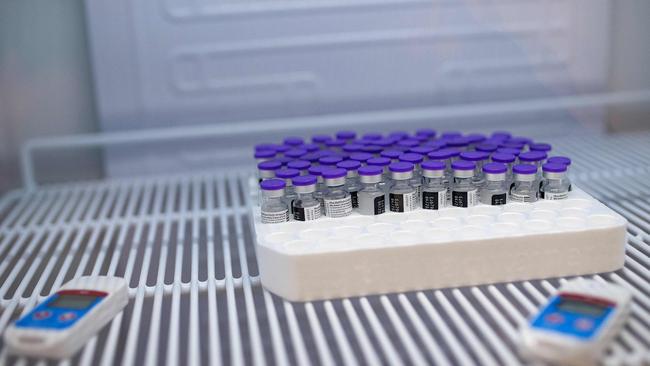Evolution of a ‘warm Covid-19 vaccine’ hotting up
CSIRO scientists have contributed to the development of a ‘warm vaccine’ for Covid-19 that is suitable for remote locations lacking access to refrigeration.

CSIRO scientists have contributed to the development of a “warm vaccine” suitable for remote locations lacking access to refrigeration that has been formulated against all Covid-19 variants of concern.
The warm vaccine has been developed by the Indian Institute of Science and biotech start-up Mynvax, and the CSIRO completed evaluation of the vaccine in animal studies.
In research published in the peer-reviewed ACS Infectious Diseases journal, researchers showed the vaccine formulations triggered a strong immune response in mice, protected hamsters from the virus, and remained stable at 37C for up to a month and at 100C for up to 90 minutes.
CSIRO health and biosecurity director Rob Grenfell said the warm vaccine could be especially useful in developing countries or extremely hot climates where refrigeration and cold storage were challenging.
Most vaccines require refrigeration to remain effective. The AstraZeneca vaccine must be kept between 2C and 8C. The Pfizer vaccine can be kept at normal freezer temperatures for up to two weeks during transport and at regular fridge temperature for up to five days, but must be kept at dry ice or ultra-cold temperatures of between -90C and -60C for longer term storage.
“A thermostable or ‘warm vaccine’ is critical for remote or resource-limited locations with extremely hot climates which lack reliable cold storage supply chains, including regional communities in Australia’s outback and the Indo-Pacific region,” said Dr Grenfell.
CSIRO scientists at the Australian Centre for Disease Preparedness in Geelong contributed to the evaluation of the warm vaccine by assessing blood samples from vaccinated mice for efficacy against key coronavirus variants, including the Delta variant now spreading globally.
“CSIRO has a long history of developing and testing vaccines for humans and animals,” Dr Grenfell said.
“Since the start of the pandemic, CSIRO has played a crucial role in fighting Covid-19 by conducting preclinical evaluation of two Covid-19 vaccines, including Oxford-AstraZeneca, tracking emerging variants of concern, and monitoring wastewater to detect hotspots in the community.”
The CSIRO evaluation of the warm vaccine was funded by a grant from Australia’s Federal Department of Finance.
The vaccine will go to human clinical trials later this year.




To join the conversation, please log in. Don't have an account? Register
Join the conversation, you are commenting as Logout